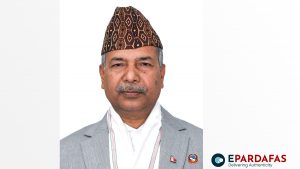
Tobacco Crisis Escalates: Survey Exposes 34.1% Addiction Rate in Nepal

A recent survey conducted by the Nepal Development Research Institute (NDRI) has shed light on the concerning trend of increased tobacco usage within the country. Despite ongoing efforts to curb tobacco consumption, the findings suggest a significant rise in usage rates over the past three years.
Survey Findings:
The survey, titled ‘National Survey on Socio-Economic and Policy Aspects of Tobacco Use in Nepal,’ revealed that 34.1 percent of Nepal’s population engages in various forms of tobacco consumption. This marks a notable increase from 31.8 percent reported in 2020.
Forms of Tobacco Use:
Among the findings, 10.7 percent of individuals smoke tobacco, while 18.9 percent use smokeless tobacco products such as paan, parag, betel nuts, gutkha, and e-cigarettes. Additionally, 4.5 percent of the population utilizes other forms of tobacco.
Age and Gender Disparities:
The survey highlighted age and gender disparities in tobacco usage, with higher prevalence rates among men compared to women. It revealed that 55.8 percent of men and 11.2 percent of women in Nepal use some form of tobacco.
Geographical Trends:
Geographically, tobacco usage is highest in Karnali Province, with 47.8 percent of the population reported to be using tobacco products. Furthermore, the survey noted that lower-income populations exhibit higher rates of tobacco consumption, with usage rates at 54.1 percent.
Expert Commentary:
Kamal Chaulagain, a researcher at NDRI, expressed concern over the inefficacy of current tobacco control measures in Nepal. He highlighted the increasing popularity of hookah and e-cigarettes among young people as contributing factors to the rise in tobacco consumption.
Recommendations and Plans:
In response to the survey findings, experts and officials have proposed several measures to enhance tobacco control in Nepal. Dr. Bhakta KC, director of the National Health Education, Information, and Communication Center, announced plans to raise taxes and ban e-cigarettes. Additionally, efforts will be made to rigorously enforce anti-smoking laws in public places.
Conclusion:
Despite ongoing efforts and legislative measures, the survey findings underscore the urgent need for more effective tobacco control strategies in Nepal. With tobacco usage on the rise, concerted action is required to mitigate the health and social impacts associated with tobacco consumption.












Comments